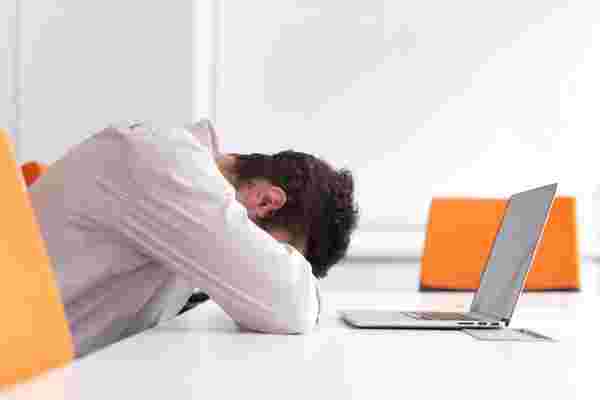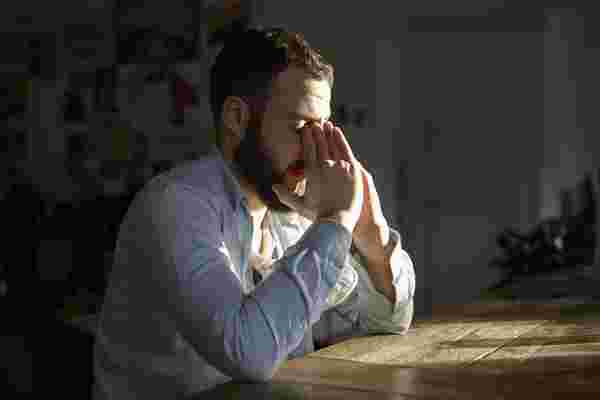
Throughout one’s corporate life, long hours and all-nighters are a badge of honour. To get ahead, you have to be seen. Going home on time is perceived as lazy, weak or not serious about one’s career.
It’s an attitude that’s been with us since the industrial revolution.
The association between burnout and success, coupled with today’s relentless pace of business, has led to worker stress skyrocketing. According to Joan Williams, professor at the University of CaliforniaHastingsCollege of Lawin the US, “I am slammed is a way of saying I am important.”
politicians and business leaders aren’t immune either. While Margaret Thatcher famously only needed four hours a night, the likes of Winston Churchill, BarackObama and Richard Branson all averaged 5-6 hours. A survey of Inc. 500 CEOs found half of them slept less than 6 hours a night.
Take a Break
What has sleeplessness cost us? Even Bill Clinton, who averaged five hours of sleep a night during his presidency, admits, “Every important mistake I’ve made in my life, I’ve made because I was too tired.”
Instead of measuring success by how much time we spent at work, the focus is shifting towards the quality of the work done, with studies showing sleep deprivation affects our mood, memory, focus and decision making, all of which stop us from working at our very best. Warren Buffet once told Berkshire Hathaway shareholders, “When forced to choose, I will not trade even a night’s sleep for the chance of extra profits.”
So if you’re wondering how burning the midnight oil works against you and the success of your business, consider what researchers have found.
Reduced Sleep Impairs Cognitive Ability and Reaction Time
An Australian study found the cognitive impairment we experience after being awake for more than 17 hours was equivalent to having a blood alcohol level of 0.05. If we’re awake a few hours more, it increases to 0.10. The same study found our response speed slows by at least 50 per cent, and our accuracy was significantly worse.
Fatigue can also threaten our health and wellbeing, with sleepiness and sleep problems the cause of 3,017 Australians losing their lives in 2016-17: 394 deaths were due to falling asleep at the wheel of a vehicle or industrial accidents. The remaining mortality is due to issues such as heart diseases and diabetes.
It’s illegal in most countries to drive a vehicle with a blood alcohol level above 0.05, so should we really be making critical decisions about our business when we’re tired?
Reduced Sleep is Linked to Mental Health and Disease
As the mortality rates from sleep problems suggest, studies have linked sleep deprivation to suppression of our natural immune function, increasing the risk of infection, hypertension and heart disease. A 2016 report by the University of Adelaide cited studies that showed sleeping less than an average of 6-7 hours increases the risk for obesity and type 2 diabetes.
And it’s not just our physical health that’s affected. 58003
With other studies linking sleep disorders to changes in mood, concentration, memory, learning, and vigilance, the relationship between sleep and wellbeing is clear: better sleep is associated with better physical and mental health.
Lack of Sleep is Linked to poor Work performance
Another University of Adelaide survey found 17 per cent of adult responders missed work because they were sleepy, 17 per cent fell asleep on the job and 29 per cent made errors at work due to sleepiness.
According to Deloitte Access Economics, absenteeism and presenteeism (when people are at work but unproductive) are significant costs to business, with productivity losses of A$17.9 billion, or A$2,418 per person with inadequate sleep, and financial and deadweight losses of A$5.9 billion, or A$802 per person with inadequate sleep.
Our focus, attention and judgment become impaired when we don’t get enough sleep, and the ability to make sound decisions is lost because we can’t assess the situation rationally and plan accordingly.
It Gets Worse the Longer it Goes On
58003
And while you can settle your “sleep debt”, it takes time and consistency: sleeping in on weekends can do more harm because it throws off your circadian rhythm, making it harder to fall asleep on Sunday night and potentially leaving you in more sleep debt than you had before.
How Much is Enough?
While the US National Sleep Foundation recommends 7-9 hours of sleep for adults, their recent sleep survey found 73 per cent of respondents averaged 6-7 hours with 45 per cent feeling their work and personal life was significantly affected by insufficient sleep.
There are plenty of resources available to help improve sleep habits, so it’s a matter of choosing what works for you. 58003
But the biggest shift is your mindset: your job and your business can be a big part of who you are, but it shouldn’t be the whole package.
The need for sleep is not a sign of human fragility; it’s what you need to replenish to perform at your very best. So change your approach – think quality work once you’ve been rested, rather than quantity of work when you’re dead tired.
郑重声明:本文版权归原作者所有,转载文章仅为传播更多信息之目的,如作者信息标记有误,请第一时间联系我们修改或删除,多谢。



